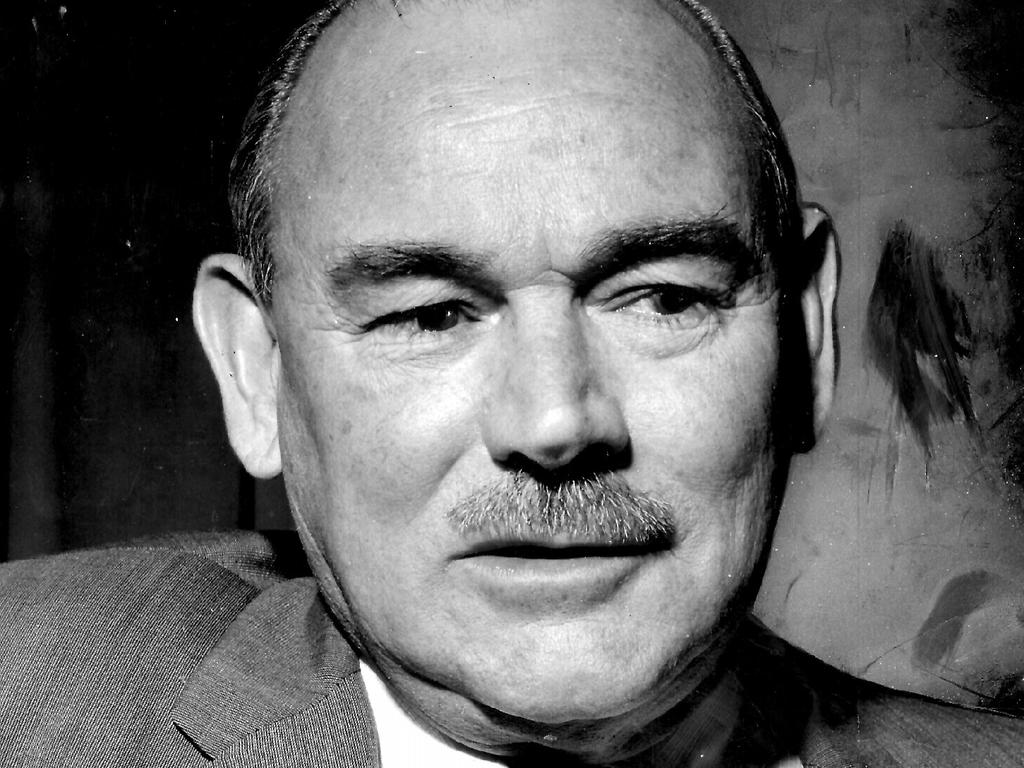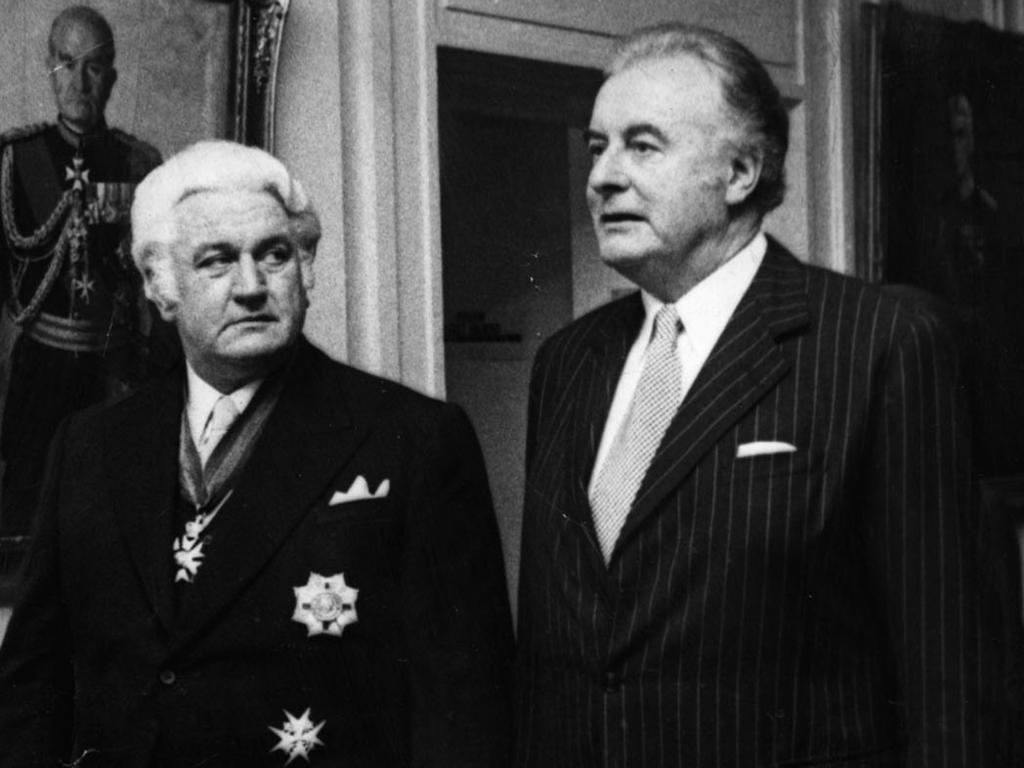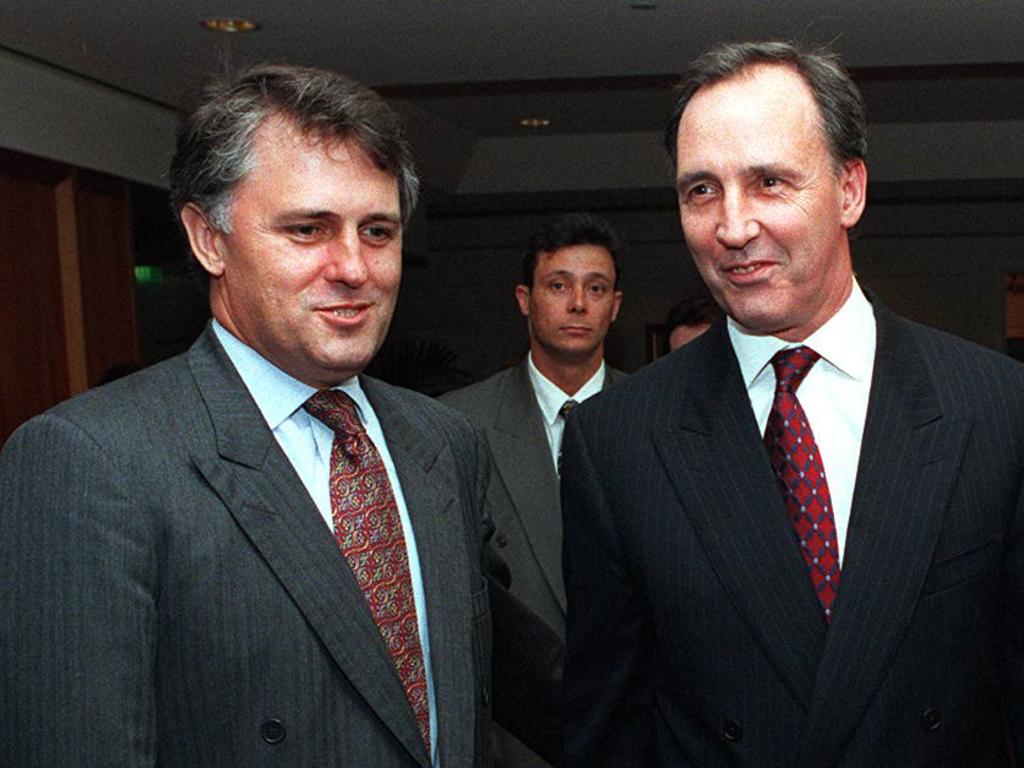Palace letters show Bob Hawke was overruled on knighthood for David Smith
Bob Hawke opposed the Queen awarding Sir David Smith a knighthood but his disapproval was set aside by the Palace.
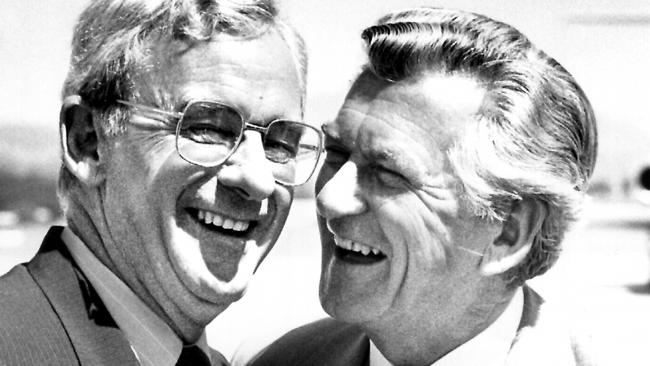
Bob Hawke strongly opposed the Queen awarding Sir David Smith a knighthood but his disapproval was set aside by Buckingham Palace and the honour was bestowed on the governor-general’s departing official secretary at Balmoral Castle in 1990.
Secret letters between former governor-general Bill Hayden and Buckingham Palace – not released by the National Archives of Australia last month but made available to The Australian by Mr Hayden – reveal Hawke’s objections were ignored.
Mr Hayden wrote to Sir William Heseltine, the Queen’s private secretary, on April 18, 1990, noting that Hawke was “distinctly unenthusiastic” when the idea of a knighthood for Sir David was first proposed. But now, he was “totally opposed” to the idea.
“You mentioned that when this was raised with the prime minister earlier, he was distinctly unenthusiastic,” Mr Hayden wrote.
“I responded to you that I would raise it with him again but after the recent elections. Sadly, I have to advise you that the prime minister is totally opposed to the suggestion.
“He says that for the Queen to do this would be to give a wrong signal to the Australian community, in particular following her recent suggestion to the national and state governments that the system of imperial knighthoods should be terminated in so far as this country is concerned.”
Mr Hayden conveyed Hawke’s anger about the knighthood, emphasising again that he was “totally opposed” and “quite unyielding” in his view.
Hawke told Mr Hayden that for the Queen to bestow the knighthood would cause “confusion” and possibly “resentment” among Australians.
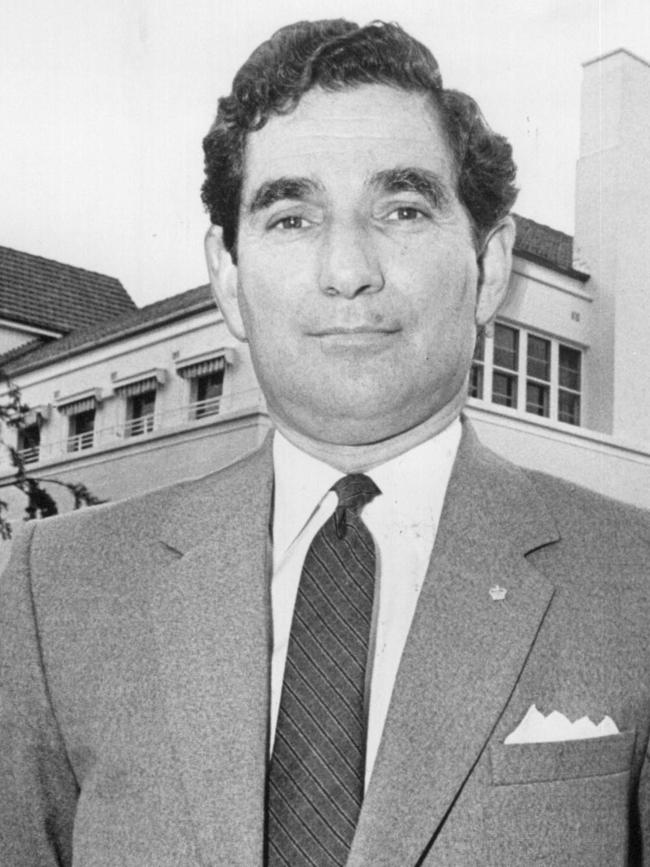
Sir David was retiring as official secretary to Mr Hayden. He had previously served Sir Paul Hasluck, Sir John Kerr, Sir Zelman Cowen and Sir Ninian Stephen in the vice-regal role.
The Queen, her advisers and Mr Hayden supported Sir David being made a Knight Commander in the Royal Victorian Order.
Buckingham Palace argued that the KCVO was a personal gift of the Queen. Mr Hayden, while instinctively opposed to imperial honours, recognised in a letter on February 15, 1990, that appointments within the Victorian Order were “for quite specific meritorious service for the Crown”. Mr Hayden thought the knighthood was “richly deserved”.
Sir William had first made the case for the knighthood in a letter to Mr Hayden on January 12, 1990. He reported that the Queen thought Sir David’s upcoming retirement was an appropriate occasion to provide a “further mark of esteem and gratitude” for his service as “a true and faithful supporter of successive governors-general, and of their office, and the Queen as Queen of Australia”.
The Queen’s private secretary noted that Hawke was “not enthusiastic” about awarding a knighthood to a government employee but iterated that it was the Queen’s personal gift and “no recommendation from him is required” for the honour.
Hawke opposed knights and dames being awarded to Australians and abolished them from the Order of Australia in 1986. The prime minister argued that Sir David should be honoured with a Companion of the Order of Australia. His advice, conveyed directly to Mr Hayden and to Sir William by the head of his department, Mike Codd, was not followed by the Queen.
Last month, The Australian exclusively revealed letters sent by governors-general to the Queen and her advisers between 1965 and 2001, from Lord Richard Casey to Sir William Deane. Mr Hayden made these new letters available to The Australian from his personal papers kept at the National Library of Australia.



